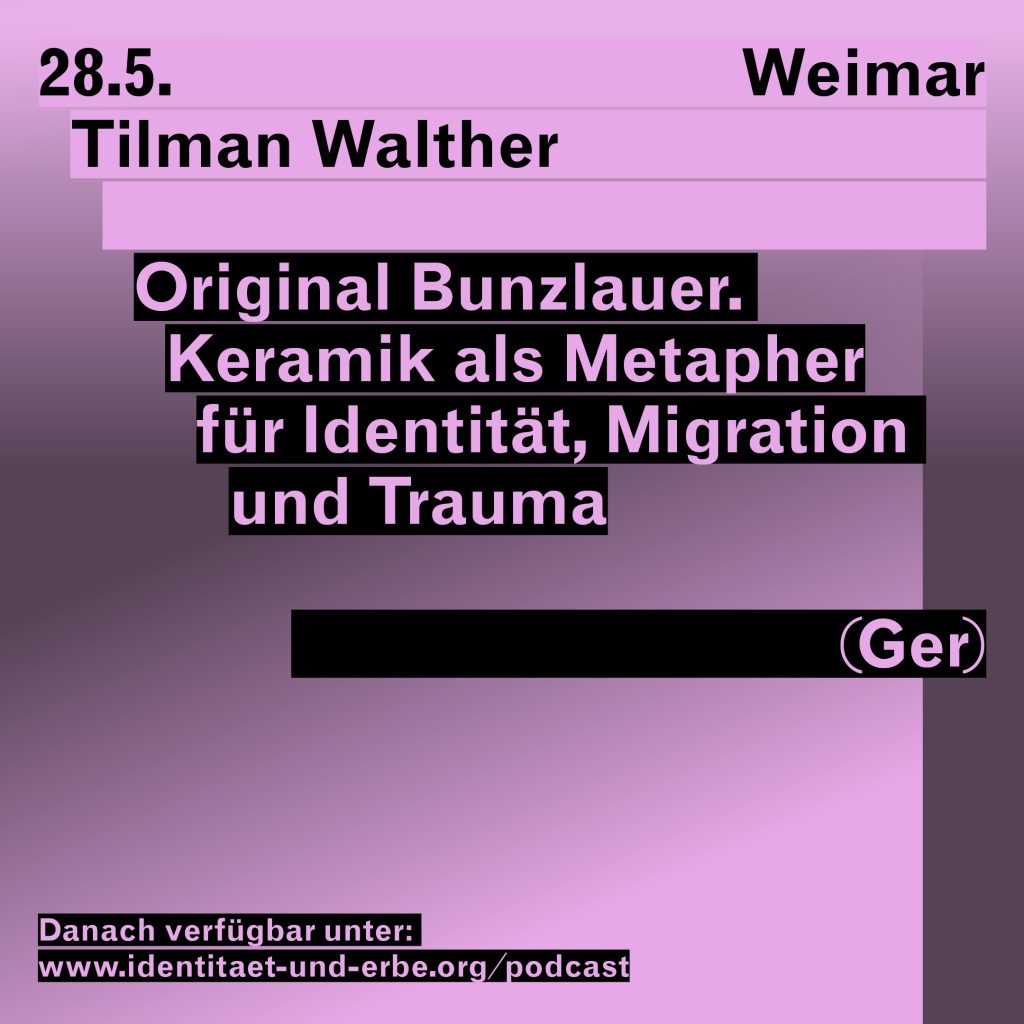Tilman Walther: Original Bunzlau ceramics as a metaphor for identity, migration and trauma (GER)
How much history and how many stories can be told through objects? An endless number to be sure. For instance, a lot can be said about Bunzlau ceramics, a product of Silesia, and its history of migration that is split in at least three parts between West Germany, East Germany and Poland. Pressed, turned, painted and stencilled, the products of this name were used as signifiers that carried partly antagonistic identity productions and the contextual narratives surrounding their genesis.
Useful in the new beginnings after 1945, they formed part of victim or heroine stories, but always with an eye on a genuine and/or historical design provenance that could bear witness to origin and heritage. This lecture will compare these stories and historical narratives and place them in context with each other – on the basis of egg cups, cake plates, coffee jugs, flower meadows and peacock eyes.
Tilman Walther lives and works in Hamburg as an artist and curator. He writes and speaks on the topics of participation and inclusion in museum cultural production and narratives of history and victimization in early West Germany with a focus on memorials produced by the Association of Returnees. Since 2020, together with Nina Lucia Groß, he has managed the Freiraum at the Museum für Kunst und Gewerbe Hamburg as a space for participation and discourse. Together with their team, they develop and curate events and discourse programs for political and cultural education. They particularly address questions of co-design: (co-)shaping coexistence, historiography and the shared present, urban space, conflict and cooperation. Tilman Walther is a doctoral candidate at the University of Fine Arts Hamburg.
Bauhaus-Universität Weimar
Marienstraße 13c, Hörsaal B
Beginn: 18.45
